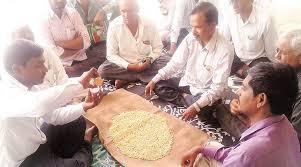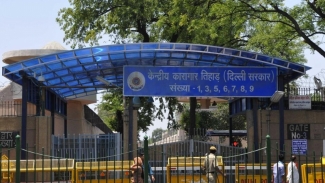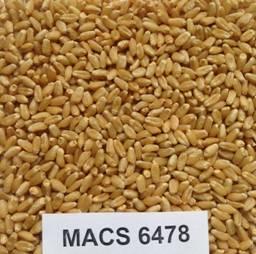
Like other farmers in Karate, a village in the Baramati taluka of Pune, Vijay Salunkhe was mildly surprised when the agricultural assistant of his area talked about a “Farmer Field School” and asked him to attend it. Salunkhe, who grows mainly maize, and partly onion and bajra, in his 2.5 acres, is thankful that he agreed because these lessons in the “school” helped him to take preventive measures against the dreaded Fall Army Worm (FAW) for his maize crop.
“During the school which is held every Sunday, the agricultural assistant talked about the new pest and how to identify it. He also provided the package of practices to save one’s crop,” Salunkhe says. It was this knowledge that alerted Salunkhe to press the alarm bottom during the early growth stages of his crop after he realised that like other fields his too had fallen prey to the FAW. He quickly applied his learnings from the school to fight the pest and save his crop. Salunkhe admits that without this hands-on knowledge he would not have been able to either identify or save his crop.
While FAW infestation has been reported on 2.67 lakh hectares of the total 8.60 lakh hectares of maize area, most farmers have reported success in controlling the infestation to a great degree. Agriculture Commissioner Suhas Diwase says the government decided to launch a multi-pronged approach to combat FAW. This included a massive farmers education programme.
“Along with posters, information kiosks etc., we also decided to start this unique concept of Farmer Field School (called Shetishala in Marathi) as means of reaching out to the farmers,” he says. Held right at the farms, this school has officers and staff of the agriculture department get farmers together on a fixed day to discuss issues related to their crops and fields. Unlike bigger seminars or workshops, these schools are held much more regularly and with much smaller groups of farmers. For example, in Karate, every Sunday morning around 10 farmers religiously come to school.
What are Farmer Field Schools?
These schools were developed by the Food and Agriculture Organization as an alternative to the top-down way of providing extension under the Green revolution. This has been in practice for a few decades in Southeast Asia. It involves giving focused guidance to small groups of farmers in their fields by way of learning-by-doing exercises.
Read more of this innovative idea to solve a problem in the field, in a report by Partha Sarathi Biswas published in The Indian Express... (Link given below)
Other state governments can replicate such models for different local problems. Even NGOs can pitch in. - Editor











